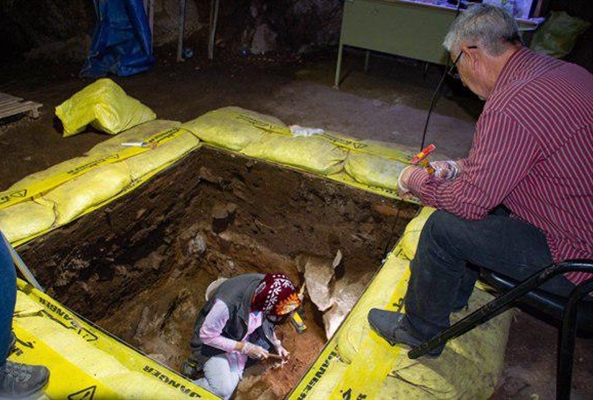According to an archaeologist, the third phase of archaeological excavations at Koldar cave in the city of Khorramabad in Lorestan province has unearthed part of the skull of a homo sapien, which is regarded as one of the rarest discoveries in West Asia.
“Given the great antiquity of the cultural evidence discovered from the new Paleolithic layers at Koldor cave, which is currently considered Iran’s most ancient new Paleolithic site, the data is seen as one of the rarest discoveries [of its kind] in West Asia,” Behrouz Badgir said.
“It can be part of the missing link in the chain of man’s evolution and the paths through which homo sapiens migrated from the African continent to Asia, southwest Asia, the Eurasia and, and finally Europe, and can be regarded as a significant discovery in Paleolithic studies across the world.”
He said a renowned Dutch paleontologist has conducted preliminary studies on the discovered item to identify the species to which the piece of bone belongs.
He noted more details on the new discovery will be announced after more precise studies are carried out by anatomy, genetics and other experts.
First Joint Habitat of Neanderthals, Homo Sapiens Found in Iran
